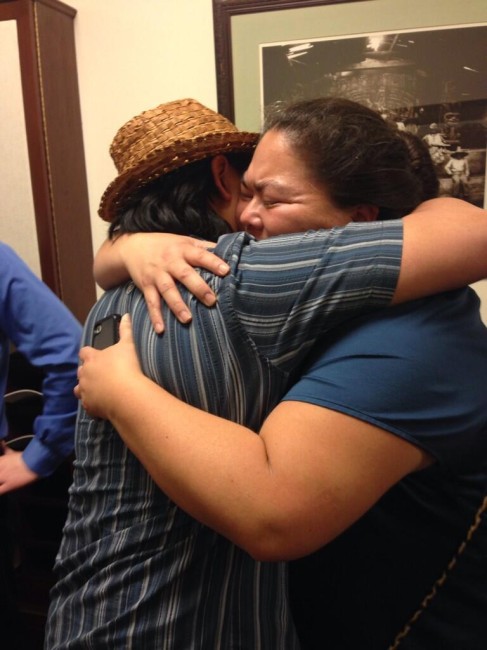Report cards came out last week.
 |
| so what exactly does a "Hawaiian report card" look like? |
Being a public school under the Department of Education, my kids get the standard report card complete with GLOs, MP/DP/SI/WTF, etc. The real exciting part is the nice addendum based on the
Kumu Honua Mauli Ola, a philosophical statement written in 1998 that basically provides focus for the goals of Hawaiian education.
Though I've never read the whole thing (this novella of a statement is in Hawaiian, of course) we hear a LOT about the Kumu Honua Mauli Ola. Everything goes back to it. Why are we taking this field trip? Why are we teaching this style of math? Can we use this thing for a fundraising brochure? Is my kid doing "okay" in school? All these questions are addressed with the KHMO in mind.
Students are assessed on the four components of the KHMO:
behavior, traditional knowledge, spirituality and language. As a parent,
I find this approach more holistic and
informative, which is the whole point of a report. To me, these targets smack of "parent-teacher conference fodder", the difference being that here the students are graded on these skills. Which gives them more weight and consequently makes their mastery necessary rather than just desirable.
Driving home from school, Ikaika was lamenting that so-and-so got an award for being "Nani Nawahi" (4.0 students) and he wanted one, too... I asked him why he wasn't and he (correctly) guessed it had to do with
lawena (behavior). Upon arriving home, I asked to see his homework and he pulled a crumpled piece of crazy out of his backpack, presenting it to me as if I should be impressed. Upon cross-referencing his report card I found that, sure enough, the grade for
maʻemaʻe (cleanliness) was dismal. "This, Son, is exactly why you aren't a 4.0 student."
If school were only about reading, writing, 'rithmatic, Ikaika would be set (he's a bright little guy) - but from a Hawaiian perspective, from the Kumu Honua Mauli Ola, he
needs to demonstrate cleanliness. You, Kindergartener, have to be able to organize your desk, put papers away neatly and pick up after yourself in addition to knowing the alphabet and adding/subtracting single digit numbers. Both are equally important for realizing the goal of developing kids into productive, well-educated community participants. Maybe a silver lining of
the lack of authentic assessments is that it allows us to focus on things that can't be measured by ETS.







